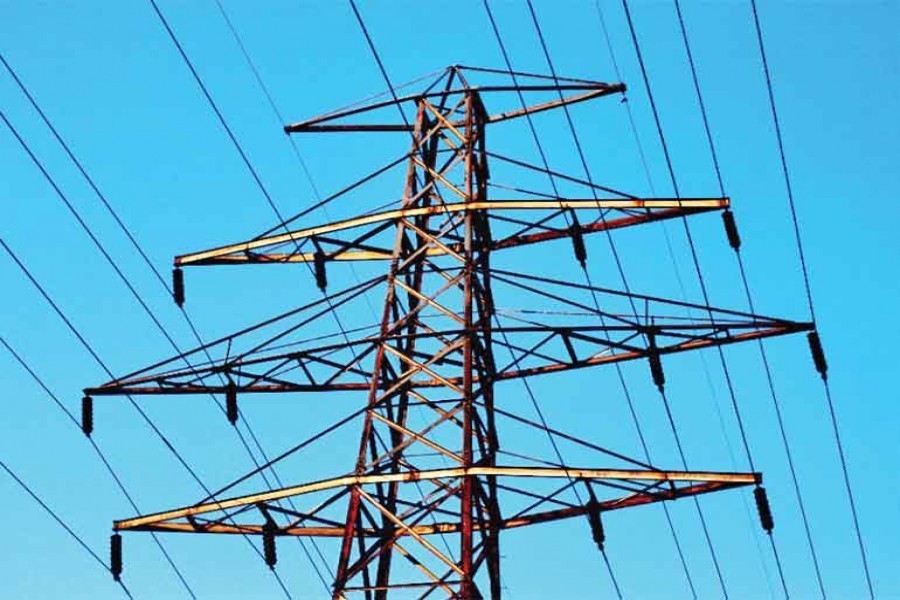Though belated the reality has dawned on the government, but at a huge cost. It has reportedly decided to scrap power purchase contracts with a number of private rental and quick rental power plants.
The government was making 'capacity' payments to a number of these plants without buying even a single kilowatt of power.
The government has now found that the 'master plan' prepared a decade back on the country's power sector was a flawed one as it made wrong projections about demand for power.
Initially, the government would close down power plants, including rental and quick rental ones, having a total 3000 megawatt generation capacity. Besides, a decision has been taken to review the master plan.
The state minister for power and energy and mineral resources while talking to a section of the media revealed that most rental and quick rental plants will be closed and only a few gas-based rental plants will be in operation. But, he said, these plants will not be entitled to any capacity payments.
All these steps have been long overdue. Despite demands coming from all directions not to strike non-transparent deals on private power plants, the authorities continue to allow the entry of such plants in greater numbers under a very controversial piece of legislation. Instead of listening to genuine advice, some people in authority even ridiculed their critics.
Now the power sector honchos have, apparently, realised their follies, but only after imposing a huge cost on the state coffer. The government, according to an estimate, had paid more than Tk. 600 billion to the private power plants as rent during the past six years though nearly 70 per cent of the plants remained idle most of the time.
The basic reason for a large number of power plants remaining idle is the mismatch between the demand for, and supply of, power. A 30-year master plan, prepared by an external aid agency, reportedly, made the projections taking into the annual GDP growth at 7.0 per cent. The actual growth of demand for power fell short of projections in first six years until 2015, but the government continued to increase generation capacity, mainly through installation of private rental, quick rental and independent power plants. For large conventional large power plants, the government decided to depend more on coal-based ones. However, the process of getting the large power projects implemented has been slow. Now it seems that the government will be required to trim its plan on coal-based power plants because of the lower than projected demand for power.
The state minister for power has underscored the need for review of the master plan to determine the actual demand for power. Actually, such a review should have been done much earlier to stop wastage of precious taxpayers' money.
Installation of power plants on the basis of wrong projections has given rise to a situation that makes wastage of taxpayers' money inevitable. A section of policymakers instead of putting a check on it have rather created opportunities for the process to continue.
This has resulted in the creation of overcapacity in the power sector. At present, the overall generation capacity is estimated at around 20,000 megawatt when the maximum demand in the peak hours hovers between 8000 and 9000 megawatt. The government has a plan the raise the capacity to 24000 MW next year. Even after planned shedding of 3000MW capacity, there would be a huge excess capacity that would continue to take a toll on the economy. And the toll will be substantial, in financial terms.
The minister concerned early this year told national parliament that the government had spent Tk. 522.60 billion as subsidy in the power sector during last 10 years. The most part of the amount went to pockets of owners of powers plants as 'capacity payments'. A part of the amount was realised from the subscribers by raising power rates, at least, on seven occasions in last 10 years and the rest came from the government exchequer.
The short-term demand for power scenario appears to be rather distressing. The consumption of power has gone down because of the pandemic and the possibility of its picking up in the upcoming fiscal also remains shrouded in uncertainty. Much would depend on an economic turnaround and that is unlikely to happen without the availability of an effective vaccine against the deadly pathogen called novel coronavirus.
There is a saying that excess of anything is bad. It is no denying that the country needed more power as its shortage was hurting the economy as well as households badly. But the relevant policymakers, apparently, have been over enthusiastic in ensuring more power within the shortest possible time. Some of them were aware that they were overdoing and that is why they took recourse to legal protection for themselves.
For damage control, the government should make a realistic exercise on demand for and, supply of, power and close down its own old oil-based power plants side by side scrapping contracts with the private rental power plants. It should also lay emphasis on completing a few large power plants that are now under different stages of implementation.


